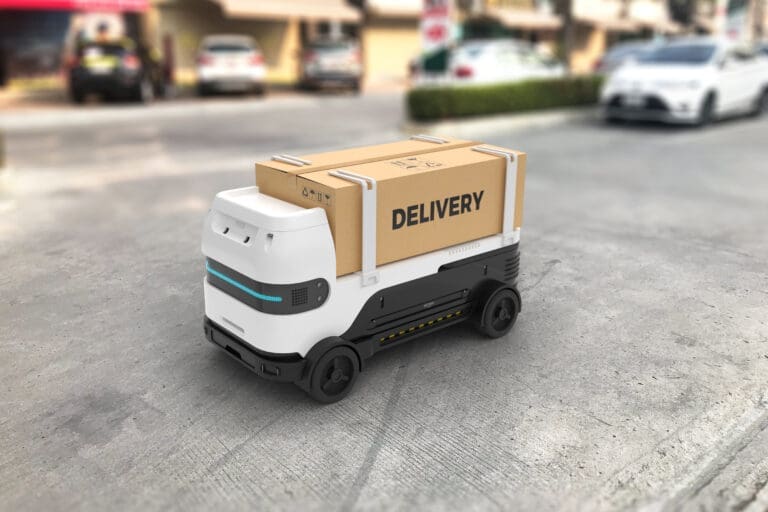The last-mile delivery market is going through the roof – not just here in South Africa but all over the world. How can courier companies deliver the goods reliably while, at the same time, treading lightly on the planet? Responsible companies are eyeing futuristic technologies that will propel deliveries into the next decade…
Courier companies across the globe are exploring various tech tools to streamline the delivery process, reduce costs, and improve overall efficiency. Robots, for instance, can undertake a number of tasks very efficiently – from picking, packing, and sorting packages to navigating pavements and delivering parcels directly to customers’ homes.²
Source: Freepix
Drones are another useful tool – because they obviously don’t get slowed down by traffic – while AI-powered delivery management systems can automatically generate the most efficient routes, reducing delivery costs and improving overall customer satisfaction in the process.²
While South Africa isn’t seeing robots on its pavements and delivery drones in the sky just yet – this tech is still too expensive – it is seeing the limited introduction of another tech tool, namely the electric vehicle (EV). South Africa’s charging infrastructure is not yet equipped for the volume of delivery vehicles needed to service the booming e-commerce market. However, forwarding-thinking companies such as Fastway Couriers will implement this tech as and when it becomes appropriate.
In the lead-up to EV adoption, Fastway Couriers, one of South Africa’s largest network of last-mile courier service providers, is constantly adopting new tech. For instance, its eCommerce solutions equip customers with real-time information and provide the automation needed to get an order delivered as quickly as possible. The company employs several leading-edge technology platforms, and customers are directly integrated with Fastway Couriers’ back-end systems – including its rate calculator, a delivery network and packing algorithm to find the best suitable Fastway product for shipment.
Research by Naspers and Prosus has revealed that global demand for last-mile delivery is set to increase by a substantial 78% by 2030. This increase will see a potential rise in greenhouse gas emissions by 32% if there is no intervention.¹ Accordingly, the courier industry is looking to employ a variety of methods to mitigate this scenario.
“We are mindful that the move to an electric fleet offers benefits – both in terms of the environment and financially. Fuel and maintenance costs can decrease about 60 and 70% respectively,” notes Daniel Lombard, Fastway Couriers’ Managing Director.
It is clear, therefore, that the future of last-mile delivery will be characterised by more and more tech, which will enhance delivery speed, dependability, and service delivery within the dynamic landscape of e-commerce. And this can only be good news for the environment and customers alike.
Sources
1.https://www.prosus.com/~/media/Files/P/Prosus-CORP/our-impact-pdf/Powering-Progress-report.pdf
